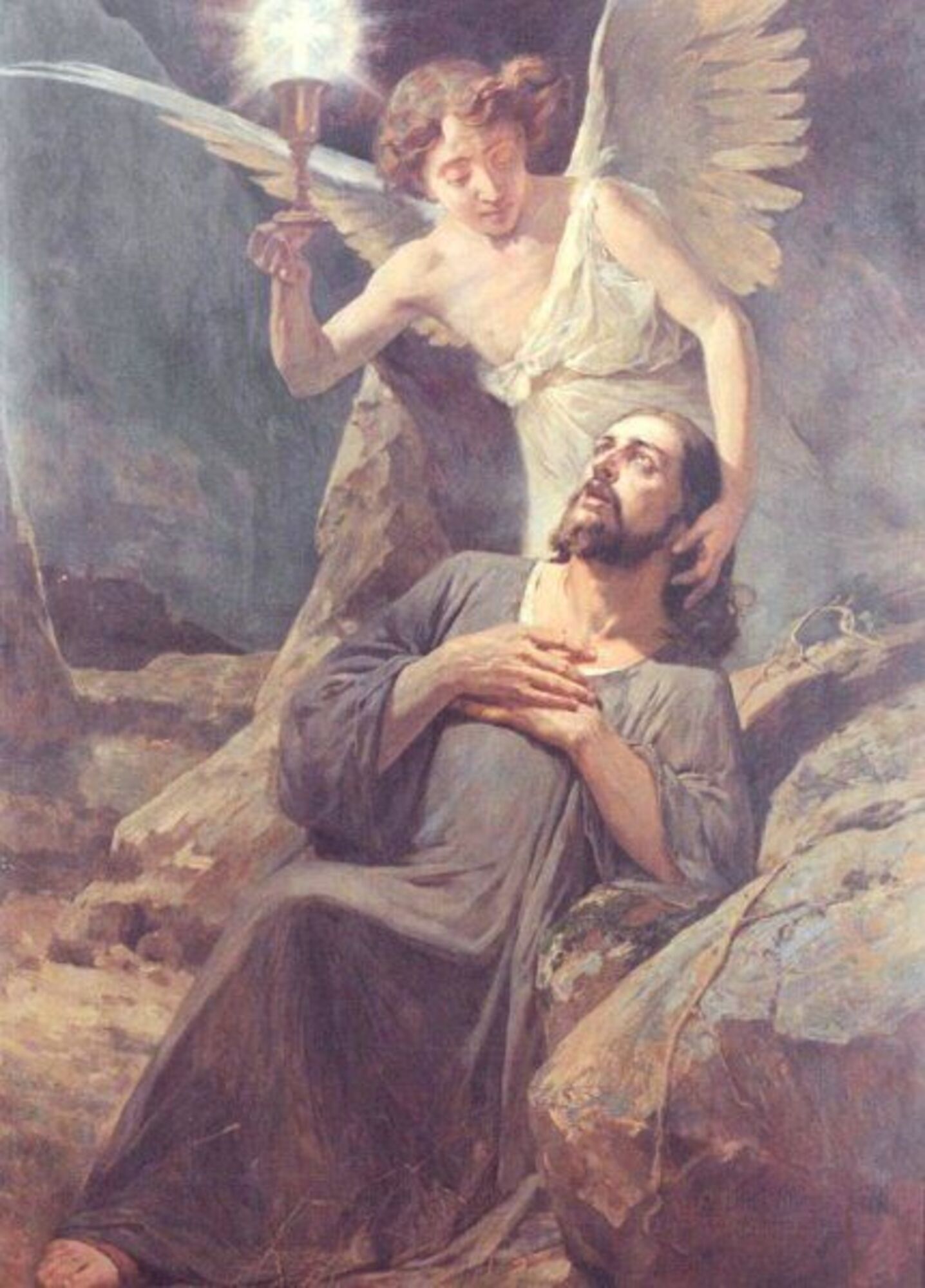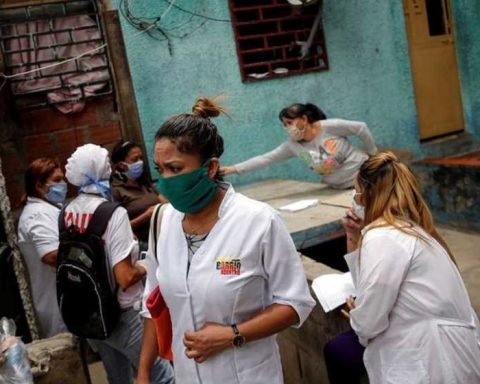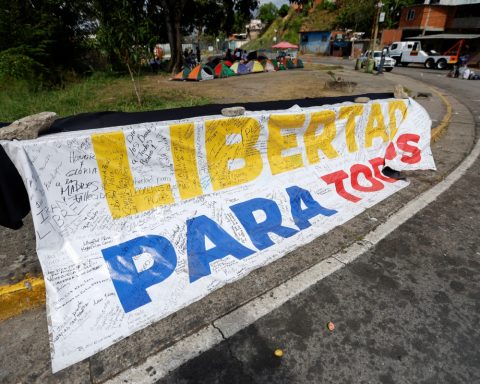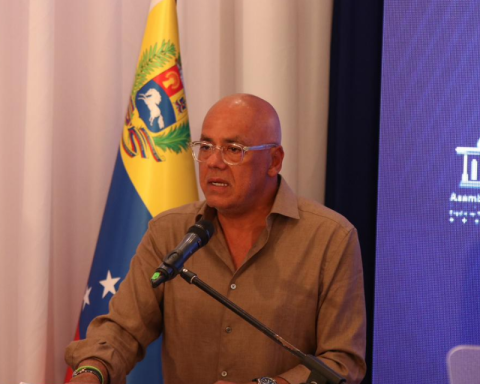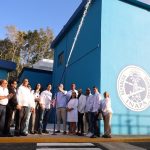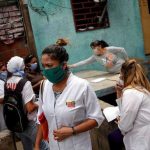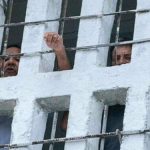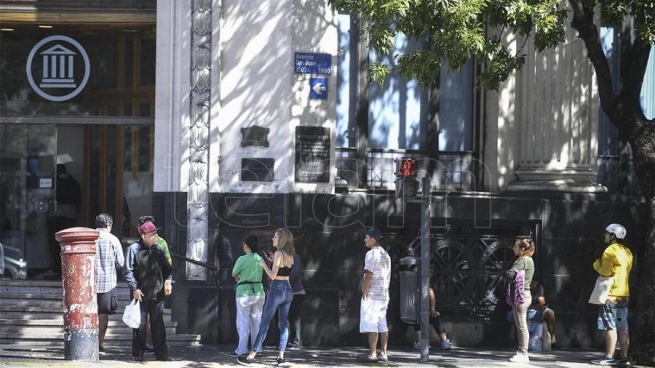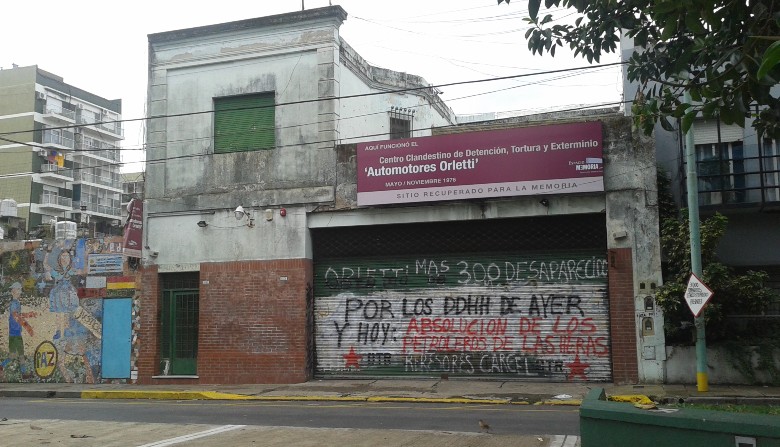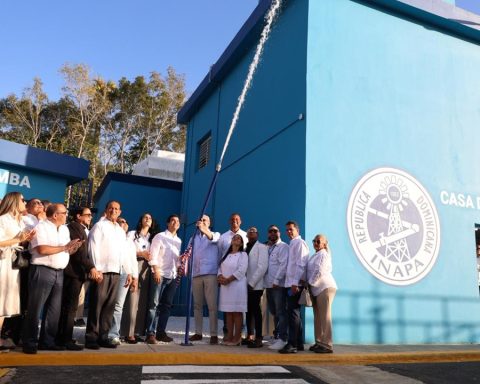By JUAN SALVADOR PEREZ
A very good Jesuit friend once told me an anecdote —or let’s say an experience— of when he was on a mission in Angola. After a strong tropical storm, this priest went out to see the havoc that the rain and wind had caused in the jungle where he was. The landscape was bleak before that sad spectacle of fallen trees. On the one hand he noticed that the trees with deep roots and rigid trunks had broken by the force of the wind. On the other hand, trees with flexible trunks but small roots had been flattened and uprooted from the ground. They only remained standing, they only managed to survive the powerful onslaught of wind and rain, those trees with deep roots and flexible trunks.
The anecdote helps me to address the topic of this article. How is the situation today of Catholicism in Venezuela?
I can only speak from my particular experience as a lay man, a believer and linked in some way to the activity of the Venezuelan Catholic Church, but never as a representative, much less as an authorized voice. I do it strictly from my condition as a simple Christian man. I observe and reflect, to locate myself and understand, rather than to offer a diagnosis and pretend to criticize.
Strong roots?
It is quite simple, almost a common place, to say that Venezuela has always been a Catholic country. As we all know, from the same ships of the conquerors also descended the friars and monks with the cross as a banner and the mission to evangelize.
From very early on, the Church began to be formally and hierarchically organized in the territory of Venezuela. The presence of the episcopate dates back to the 16th century, with the first diocese of Venezuela in Coro, dated March 21, 1531, later transferred to Caracas (March 7, 1638); then the diocese of Mérida (February 17, 1778); that of Ciudad Bolívar (May 20, 1790); Maracaibo (July 28, 1897). These dioceses covered vast territories and were very isolated from each other. In other words, one cannot speak of a collegiate episcopate with a consciousness of unity. In fact, it was not until the beginning of the 20th century that timidly began to speak of the Venezuelan Episcopate, when in 1904 the first conference —used the word in the meaning of meeting— of the Venezuelan Episcopate was held.
But, formally, it will be in November 1973 when the statutes of the Venezuelan Episcopal Conference will be published in bulletin No. 2 of the Permanent Secretariat of the Venezuelan Episcopate, and the First Ordinary Plenary Assembly of the Episcopal Conference will be held, in accordance with what is established there. Venezuelan, from January 7 to 12, 1974.
That is to say, although the presence of the Church dates back to the times of the conquest, it will not be until well into the 20th century that a solid, unified and body-conscious conception will be had.
Today the Church has 42 ecclesiastical jurisdictions in the country, distributed in 9 archdioceses, 27 dioceses, 3 apostolic vicariates, 2 exarchates and a military ordenate. Just over 2,000 priests, just under 400 permanent deacons and 60 bishops (41 titular, 3 auxiliary and 16 emeritus), the dioceses with the largest number of priests being San Cristóbal (208), Trujillo (154), Barquisimeto (148), Merida (127), Caracas (121).
According to opinion polls and various surveys, the number of Catholics (or people who consider themselves so) varies from 75 percent of the population to more than 90, clearly very high figures.
Seen this way, both for the historical presence and for the number of faithful, Venezuela is an irrefutably Catholic country. But are we really? Beyond nominal, what does that mean?
In a very interesting work by the American sociologist Rodney Stark on the emergence and growth of Christianity (1), this researcher wonders how from that initial small group of no more than 120 Jewish followers at the time of Jesus’ death, we reached almost 34 million of Christians in barely 300 years. This growth that sounds and reads miraculous is presented by Stark as a growth rate that is undoubtedly important but normal, at a rate of 40% per decade during the first centuries, which has been the growth rate of other successful religious denominations in history. history. Hence, then, for Stark, the phenomenon of the expansion of Christianity did not lie so much in the rate of growth, but in the success of the message of Christianity as a religious offer, in the attractiveness of its proposal, in the novel content of that good news.
Christianity grew as it grew thanks to the life testimony of the Christians of the first centuries, to their practical ethics that managed to inspire an exhausted and empty Roman society. The historical circumstances became opportunities that were correctly taken advantage of, thus allowing the positioning of Christianity mainly in the middle classes, but also in the lower classes, as well as in important, decisive and influential upper-class families.
According to Stark, the responses and proposals of Christians regarding issues such as the role of women in society, the treatment of slaves, the dignity of all men (eg the condemnation of the circus and games), the active solidarity and the selfless service to the sick, even reaching more intimate family issues such as fertility, infanticide, abortion represented a true cultural revolution that allowed the growth of Christianity.
So I return to the question we asked ourselves above: are we really a Catholic country in the essential terms of the message and practice that being Christians—followers of Christ—in Venezuela today entails? Are our Catholic roots a historical consequence of the discovery, the conquest and the colony projected in the passing of the years and tradition, or does it really attend to a deep, convinced and practical conviction of the message of Christ in the daily life of all of us?
Flexible trunk?
The great GK Chesterton said —he insisted rather—, when speaking of Catholicism, that the faithful really do not want a religion that is right when we are right, what we want is a religion that is right when we are wrong.
In important studies on religiosity and faith (2) it has recently been proven that human beings are not only more interested in these issues but also recognize the need to believe and belong to religious cults. I can refer, by way of example, my recent personal experience of last Ash Wednesday. That day I went to mass in my parish in the morning, and the large number of faithful impressed me, especially when compared to the usual low attendance of mass at the same time on Sundays. At the end of the day I told the parish priest about my pleasant impression, and he responded by telling me that the attendance at the noon and afternoon masses had been even higher. Magazine America Magazine he also made the same observation in the North American reality, an unusually large turnout of people participating in the ash-laying celebration. Article (3) walks around for various reasons to explain the phenomenon, but the most convincing (at least for me) is the need for people to participate, to feel part of it.
In Venezuela the Catholic Church enjoys a very favorable reputation as an institution. According to the 2021 report by Latinobarómetro, more than 70 percent of the Venezuelan population recognizes the Catholic Church as a reliable institution. The work carried out by Caritas throughout the country in the face of the crisis that people are going through, the episcopate’s voice of denunciation in the face of the national situation, the social commitment of parish priests and other ecclesial organizations and orders, provide a solid basis for this recognition.
However, at the same time the Catholic Church is perceived by many, especially among young people, as an institution stagnant in time in relation to many current (and classic) issues such as sexuality, women’s participation, etc. . But beyond these debates that must undoubtedly take place, the Church needs —and knows it— to continue with the update that began at the Second Vatican Council. The current pontificate has initiated an interesting, innovative and perhaps little known process of consultation open to all men and women in the world. This process has been called by the Vatican as the synod of synodality, due to its etymological meaning: walking together.
The Church must speak clearly and with determination, this has always been done. But this is not enough, the Church above all needs to be understood, and for this it is essential to know what the faithful think and how they think of it, and thus, following Chesterton, truly serve as a beacon of faith. This is what flexibility consists of, not in the essential change of the message but in the process of sensitive listening.
In conclusion
Venezuela is hardly a country—as Google points out rather lightly—with more than 30 million Catholics. But the reality is that religion is not about proselytizing the faithful, who has the longest list… those are anachronistic obsessions and misconceptions.
Religions —Xavier Zubiri tells us— are the further embodiment of religation, and the history of religions, the progressive enrichment of the power of reality or deity, which is a manifestation of the reality of God hidden in the depths of all reality ( 4).
The Catholic Church is an institution, without a doubt. But also the Catholic Church are all the faithful that make it up. Talking about the Catholic Church thus means talking about the hierarchical structure, bishops, priests, parishes… and at the same time it implies talking about all of us who call ourselves ordinary Catholics.
We have in Venezuela, as we have seen, a Catholic Church with historical roots dating back to the 15th century, but today it has an institutional presence, respect and recognition that it has earned through hard work, sweat and tears in the accompaniment of the people who suffer the most in the world. country.
We also have a large number of Venezuelans who define ourselves as Catholics, and this is evidenced —or at least should be evidenced— in Christian behavior on the street, at home, before others.
Because beyond the ashes on the forehead, the procession does not always go outside.
*Juan Salvador Pérez is Director of the SIC Magazine.
References
one The spread of Christianity. a sociological study. Rodney Stark, Editorial Trotta, 2009.
2 For such purposes, it is worth reviewing the studies published by the Pew Research Center.
3 Why so many Catholics want to get their ashes—even if they rarely go to Mass. Bruce T. Morrils.j. www.americamagazine.org2022.
4 On the religion of Xavier Zubiri. Juan Carlos Infante Gómez, Complutense University of Madrid, 2018.
